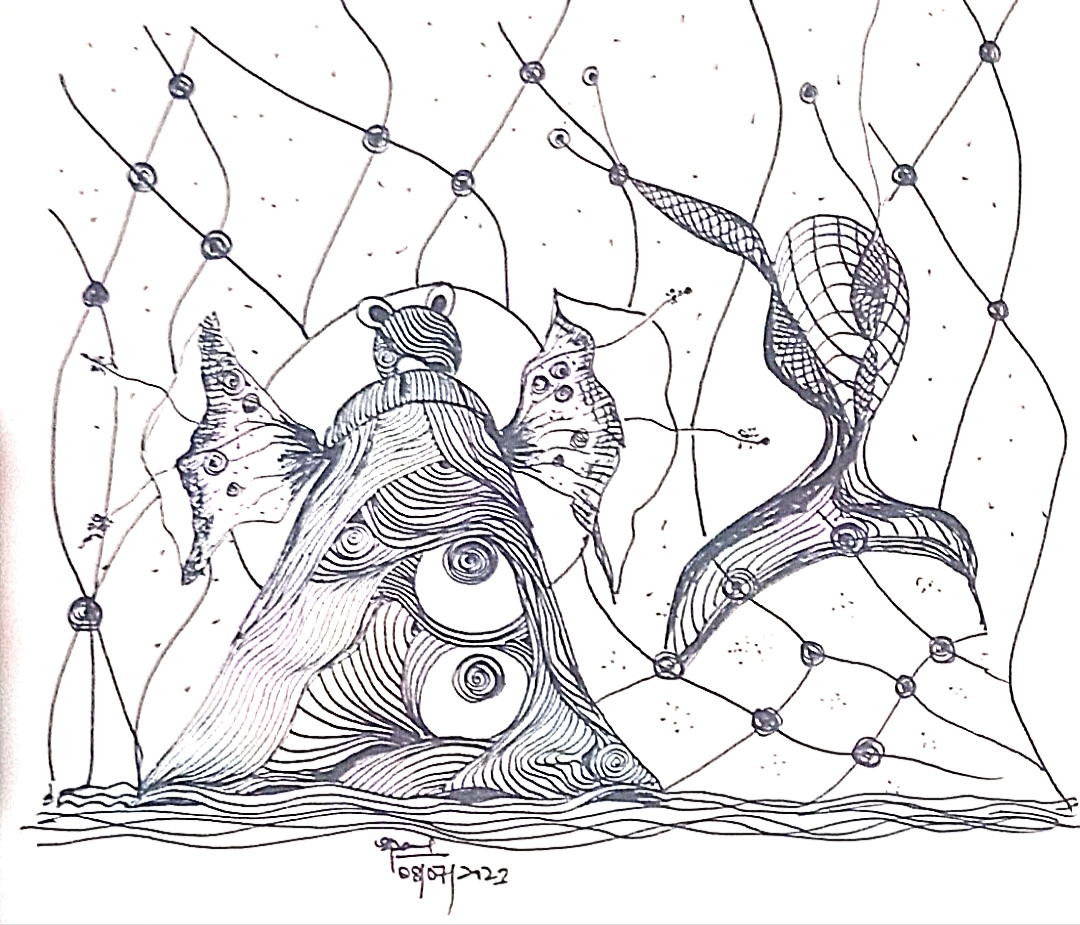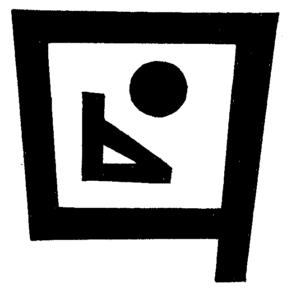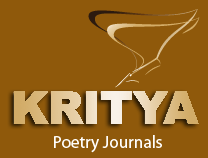
In The Name of Poetry
We have invited Iraqi poet Faleeha Hassan to talk about her journey of poetry. Her bio note is given at the end of the Interview – RS
1- How can poetry give marginalized languages and forgotten voices a renewed life?
Poetry has a remarkable ability to breathe life into marginalized languages and amplify forgotten voices. By translating poems from one language to another, we bridge cultural gaps and preserve linguistic diversity. When poets explore themes unique to their heritage, they enrich the global poetic landscape. Through translation, these voices reach wider audiences, fostering understanding and appreciation.
2 – Where are you from the poetry experiences in the world,
Poetry transcends borders, connecting people across continents. From ancient Chinese poets like Li Bai to contemporary American writers like Maya Angelou, each contributes to a rich tapestry of human expression. The evolution of poetry reflects societal changes, technological advancements, and shifts in artistic sensibilities. and this is what I am trying to include in my poems when I write.
3 – Your external posts, what did you add to you and in return what did you add to them?
Poetry teaches empathy, resilience, and the power of metaphor. It has shaped my understanding of emotions, relationships, and the human condition. In return, I hope my responses inspire curiosity and creativity in others.
4- From Tagore to today, how do you look at the evolution of the poem, and what kind of poem do you prefer to write?
Rabindranath Tagore, a Nobel laureate, revolutionized Bengali poetry. His lyrical verses celebrate nature, love, and spirituality. Today, poets explore diverse forms—free verse, haiku, sonnets, and spoken word. Personally, I appreciate poems that evoke emotions, challenge conventions, and resonate with authenticity, but also I can’t write any subject if I don’t have experience about it .
5– In your last participation in Tunisia what did you read at the festival? And what does India call this kind of hair, comparing it with a clip of your post?
unfortunately, I didn’t get an invitation to go to the Tunisia Festival Poetry this year
6-How does Faleeha write her poem? Writing weather, who goes to the other you or the poem, and how?
like many poets, draws inspiration from life, emotions, and observations. The weather, whether stormy or serene, influences my writing. Sometimes, the poem seeks me; other times, I seek the poem. It’s a dance between self and art.
7. Your poetry releases and translations, and where do you put your experience with global poetry experiences?
My knowledge extends up to 1991when I published my first poetry book, but I can say I see myself when the reader sees me through my poems and creative writing. However, global poetry experiences enrich our collective consciousness. Translations allow us to appreciate Persian ghazals, Japanese tanka, and Spanish sonnets. Each translation adds to this shared treasury.
8. What are your losses in the light of writing poetry? And when did your passion for reading start, and then writing?
Writing poetry involves vulnerability. Losses—personal, cultural, or historical—fuel creativity. My passion for reading began early, and writing followed. Poetry became my refuge, a way to explore emotions beyond ordinary language.
9- What kind of life did you aspire to in the light of dreams and the narcissism of the poet?
As a poet, I aspire to capture fleeting moments, emotions, and dreams. Narcissism, when balanced, fuels creativity. We seek immortality through verse, hoping my words resonate across time.
10-Where does the poet’s anxiety lie during the thought of writing the poetic text and during writing and after its completion?
Anxiety accompanies creation. The blank page intimidates, but once ink flows, relief follows. After completion, we wonder if our words matter—a universal poet’s dilemma.
11- Who inspires you to write now?
My inspiration comes from life, nature, experience, and the Ordinary People I live with,
those who inspired me without them I can’t write anything
12- Your assessment of the poetry audience in India? Does the intellectual live as a creative alien?
India’s poetry audience is diverse. Intellectuals, romantics, and rebels coexist. Some poets remain underground, while others achieve fame. Creativity thrives in this complexity.
13- What kind of festivals are taking place in your country?
Many festivals are held in Iraq, such as the Marbid Festival, the Abu Tammam, and Algoahery, these festivals take place in the capital, Baghdad, and the city of Basra in southern Iraq, or northern Iraq. There are many festivals in Iraq. festivals are a great way to celebrate poetry.
14-Do you read poetry translated into English for Arab poets, and who you care about and follow?
I read Arabic poetry in my mother tongue, and I would very much like to re-read Badr Shakir Al-Sayyab, Yousef Al-Sayegh, Hassab Al-Sheikh Jaafar, and Muhammad Al-Maghout, but many Arab poets’ works are beautifully translated into English. Mahmoud Darwish, and Nizar Qabbani come to mind. Their verses resonate globally.
15-The world is no longer a village, it is now the size of the palm. This means that we can follow the movement of poetry in the world.
The digital age connects poets globally. We witness diverse experiences—love in Tokyo, revolution in Cairo, and longing in Buenos Aires. Each resonates differently.
16- How do you look at global experiences and which experiences are closer to you?
All poetic experiences are important to me, whether they are a flash poem, a haiku poem, or lengthy poem like the lengthy ones that the Arabs wrote in the past, which consisted of a thousand lines. All of them are important experiences to me because when poems are born, they do not come from a vacuum. Each poem carries its suffering, so I celebrate all of them. and I keep reading them in Arabic, or English.
17. Your last poem.. Possible clip?
Yes .” My mother was in a hurry,
She didn’t dress me in the silk of her love
My father, on the other hand is gone
My brother followed his steps
What the matter of this family
They didn’t bother to put some drops of honey,
So, my life remained bitter and severe”
18- Do your family read poetry and do they show who cares about hair in your way?
My family was not interested in my writing, I think that a poet is he or she will be lucky if his family or children are interested in what he writes. It is not easy for a poet to find readers within the family.
19. Who reads Faleeha’s poetry now?
My poems are directed at everyone, those who like to read about the experience of war, and everyone who searches for peace and love. Therefore, there is no specific age group for reading my poems, knowing that I also wrote poetry for children, and I am the first woman to write children’s poetry in Iraq, so some of my poems share the joys of childhood.
In general, everyone who loves to read about the experience of war, its bitterness, hunger, displacement, and the search for safety can find that in my poems. In addition, they will find that peace is the only way to live with everyone.
20. An Impact Book on You
The Holy Qur’an is the first and last book that had a great impact on my personal and creative life as well. From its eloquence, the composition of those sentences, and the greatness of its texture, I derive many meanings. Because it is a book that is renewed in everything, in its formulation, in its composition, in its meanings, and the depth of those meanings. Therefore, its influence was and still is very great on me as a human being and as a poet.
21. Book for you in travel
Any short novel will be good to take with me to read on the plane, train, car, or bus. I am an avid reader of the novels. As for poetry, I can only read it in a stable place.
22- The sound of my poetry from the new generation caught your eye and you think it will be influential
Certainly! The emergence of new voices in poetry is both exciting and influential. As the next generation expresses their unique perspectives, they contribute to the ever-evolving poetic landscape. Their words resonate with contemporary issues, emotions, and experiences, bridging the gap between tradition and innovation.
23– How do you look at translation, and which languages have translated your work, as possible?
Translation is a fascinating and complex process that involves converting text from one language to another. It requires not only a deep understanding of both the source and target languages but also an appreciation for the cultural and contextual nuances involved in linguistic accuracy, cultural sensitivity, context, tone, technical proficiency, and creative adaptation. Overall, translation is a balancing act that requires a blend of linguistic expertise, cultural insight, and creative problem-solving to produce a text that faithfully represents the original while resonating with the target audience.my poems translated into English, Turkmen, Bosnian, Indian, French, Italian, German, Kurdish, Spain, Korean, Greek, Serbia, Albanian, Pakistani, Romanian, Malayalam, Chinese, ODIA, Nepali and Macedonian language.
24- Your next project?
I am busy completing two poetry books and translating another book from English to Arabic.
Faleeha Hassan.
She is a poet, teacher, editor, writer, and playwright born in Najaf, Iraq, in 1967,  who now lives in the United States. Faleeha was the first woman to write poetry for children in Iraq. She received her master’s degree in Arabic literature, and has now published 26 books, her poems have been translated into English, Turkmen, Bosnian, Indian, French, Italian, German, Kurdish, Spain, Korean, Greek, Serbia, Albanian, Pakistani, Romanian, Malayalam, Chinese, ODIA, Nepali and Macedonian language. She is the Pulitzer Prize Nomination 2018, PushCaret Prize Nomination 2019.
who now lives in the United States. Faleeha was the first woman to write poetry for children in Iraq. She received her master’s degree in Arabic literature, and has now published 26 books, her poems have been translated into English, Turkmen, Bosnian, Indian, French, Italian, German, Kurdish, Spain, Korean, Greek, Serbia, Albanian, Pakistani, Romanian, Malayalam, Chinese, ODIA, Nepali and Macedonian language. She is the Pulitzer Prize Nomination 2018, PushCaret Prize Nomination 2019.
Member of International Writers and Artists Association.
Winner of the Women of Excellence Inspiration award from SJ magazine 2020,
Winner of the Grand Jury Award (the Sahitto International Award for Literature 2021)
One of the Women of Excellence selection committees 2023
Winner of women the arts award 2023
Member of Whos’ Who in America 2023
SAHITTO AWARD, JUDGING PANEL 2023
Winner of HerStory Award from women’s Federation for world peace new Jersey 2024
Cultural Ambassador – Iraq, USA since 2018
Cultural Ambassador and worldwide literary advisor PEN CRAFT Bangladesh
Email : d.fh88@yahoo.com

